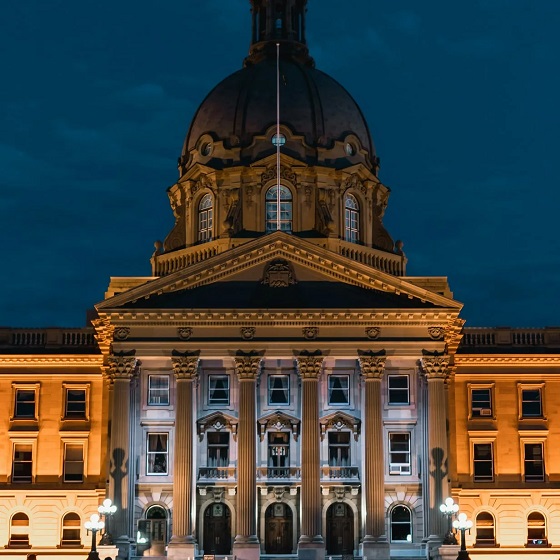Uncategorized
Showdown hearing not set yet: Dems, GOP arguing on witnesses

WASHINGTON — Wrestling for advantage, Democratic and Republican senators argued Tuesday over who could, should or would testify at next Monday’s hearing with Supreme Court nominee Brett Kavanaugh and the woman who accuses him of a sexual assault when they were in high school. Doubts were even raised whether she would appear.
Meanwhile, Kavanaugh was at the White House for a second straight day.
Sen. Chuck Grassley, R-Iowa, said on radio’s “Hugh Hewitt Show” that he’d not yet received confirmation from the accuser, Christine Blasey Ford, that she would appear, despite several attempts to reach her camp.
“So it kind of raises the question, do they want to come to the public hearing or not?” Grassley said.
A day earlier, Republican abruptly agreed to hold a public Judiciary Committee hearing at which Kavanaugh and Ford have been invited to testify. Party leaders made that concession under pressure from senators demanding that the nominee and his accuser give public, sworn testimony before any vote on President Donald Trump’s nominee.
Senate Minority Leader Chuck Schumer, D-N.Y., said Democrats want more than two witnesses, including Mark Judge, who Ford has said was a Kavanaugh friend present during the alleged incident.
Limiting the hearing to just Kavanaugh and Ford would be “inadequate, unfair, wrong and a desire not to get at the whole truth,” Schumer said.
He also said the FBI should be given time to reopen its background investigation into Kavanaugh so it could check Ford’s assertions. And he said the Judiciary Committee should not rush the nomination through by voting on Kavanaugh a day or two after Monday’s hearing.
As both sides contemplated the hearing, Republicans were thinking through the optics of a nationally televised showdown between Kavanaugh and his accuser at which all 11 GOP Judiciary Committee members are men.
The hearing is certain to be conflicting and emotive. It will offer a campaign season test of the political potency of a #MeToo movement that has already toppled prominent men from entertainment, government and journalism and energized female voters and political candidates.
Asked by Hewitt if he was considering including a female counsel who would ask questions, Grassley said, “All those things are being taken into consideration.” He added later, “You’re raising legitimate questions that are still in my mind.”
Meanwhile, Senate Majority Leader Mitch McConnell stood strongly behind Brett Kavanaugh, saying her claims that he’d sexually attacked her when both were high schoolers “stands at odds” with everything known about the Supreme Court nominee’s background.
McConnell said that “blatant malpractice” by Democrats — not releasing a letter by the accuser until the confirmation process was nearing its end — “will not stop the Senate from moving forward in a responsible manner.”
The remarks by McConnell, R-Ky., seemed aimed at
Democratic Sen. Dianne Feinstein of California, who received Ford’s letter over the summer, said she didn’t reveal it to protect Ford’s confidentiality.
Kavanaugh spoke with the Judiciary panel’s counsel Monday and gave a “clear and consistent” account of what happened 36 years ago, said a person who wasn’t authorized to be identified while describing the process. The person described Kavanaugh as “resolute” and eager to defend himself. Kavanaugh met Monday with White House Counsel Don McGahn and others at the White House and called several senators.
Ford says that at a party when both were teenagers in the early 1980s, an intoxicated Kavanaugh trapped her in a bedroom, pinned her on a bed, tried to undress her and forced his hand over her mouth when she tried to scream. She said she got away when a companion of Kavanaugh’s jumped on him.
Kavanaugh, 53, has vehemently denied the accusation. He said in a statement Monday that he wanted to “refute this false allegation, from 36 years ago, and defend my integrity.”
If the Judiciary committee’s timetable slips, it would become increasingly difficult for Republicans to schedule a vote before midterm elections on Nov. 6 elections, when congressional control will be at stake.
With fragile GOP majorities of just 11-10 on the Judiciary committee and 51-49 in the full Senate, Republican leaders had little room for defectors without risking a humiliating defeat of Trump’s nominee to replace retired Justice Anthony Kennedy.
Among the GOP defectors was Sen. Jeff Flake of Arizona, a Judiciary Committee member who has clashed bitterly with Trump and is retiring from the Senate. Flake said he told No. 2 Senate Republican leader John Cornyn of Texas on Sunday that “if we didn’t give her a chance to be heard, then I would vote no.”
There was enormous pressure on GOP Sens. Susan Collins of Maine and Lisa Murkowski of Alaska, two moderates who have yet to announce their positions on Kavanaugh and aren’t on the Judiciary Committee.
Collins said that in a telephone conversation with Kavanaugh on Friday he was “absolutely emphatic” that the assault didn’t occur. She said it would be “disqualifying” if Kavanaugh was lying. Murkowski said Ford’s story “must be taken seriously.” Neither Collins nor Murkowski faces re-election this fall.
Democrats say they want the FBI to investigate Ford’s claims.
But the Justice Department said in a statement late Monday that the accusation against Kavanaugh “does not involve any potential federal crime.” It said the FBI had forwarded to the White House a letter, evidently from Ford, describing alleged misconduct in the 1980s by Kavanaugh. The statement seemed to suggest that the FBI was not currently investigating it.
Ford is now a psychology professor at California’s Palo Alto University. Kavanaugh is currently a judge on the U.S. Court of Appeals for the District of Columbia, widely viewed as the nation’s second-most-powerful court.
Alan Fram And Lisa Mascaro, The Associated Press
Uncategorized
Cost of bureaucracy balloons 80 per cent in 10 years: Public Accounts

The cost of the bureaucracy increased by $6 billion last year, according to newly released numbers in Public Accounts disclosures. The Canadian Taxpayers Federation is calling on Prime Minister Mark Carney to immediately shrink the bureaucracy.
“The Public Accounts show the cost of the federal bureaucracy is out of control,” said Franco Terrazzano, CTF Federal Director. “Tinkering around the edges won’t cut it, Carney needs to take urgent action to shrink the bloated federal bureaucracy.”
The federal bureaucracy cost taxpayers $71.4 billion in 2024-25, according to the Public Accounts. The cost of the federal bureaucracy increased by $6 billion, or more than nine per cent, over the last year.
The federal bureaucracy cost taxpayers $39.6 billion in 2015-16, according to the Public Accounts. That means the cost of the federal bureaucracy increased 80 per cent over the last 10 years. The government added 99,000 extra bureaucrats between 2015-16 and 2024-25.
Half of Canadians say federal services have gotten worse since 2016, despite the massive increase in the federal bureaucracy, according to a Leger poll.
Not only has the size of the bureaucracy increased, the cost of consultants, contractors and outsourcing has increased as well. The government spent $23.1 billion on “professional and special services” last year, according to the Public Accounts. That’s an 11 per cent increase over the previous year. The government’s spending on professional and special services more than doubled since 2015-16.
“Taxpayers should not be paying way more for in-house government bureaucrats and way more for outside help,” Terrazzano said. “Mere promises to find minor savings in the federal bureaucracy won’t fix Canada’s finances.
“Taxpayers need Carney to take urgent action and significantly cut the number of bureaucrats now.”
Table: Cost of bureaucracy and professional and special services, Public Accounts
| Year | Bureaucracy | Professional and special services |
|
$71,369,677,000 |
$23,145,218,000 |
|
|
$65,326,643,000 |
$20,771,477,000 |
|
|
$56,467,851,000 |
$18,591,373,000 |
|
|
$60,676,243,000 |
$17,511,078,000 |
|
|
$52,984,272,000 |
$14,720,455,000 |
|
|
$46,349,166,000 |
$13,334,341,000 |
|
|
$46,131,628,000 |
$12,940,395,000 |
|
|
$45,262,821,000 |
$12,950,619,000 |
|
|
$38,909,594,000 |
$11,910,257,000 |
|
|
$39,616,656,000 |
$11,082,974,000 |
Uncategorized
Trump Admin Establishing Council To Make Buildings Beautiful Again


From the Daily Caller News Foundation
By Jason Hopkins
The Trump administration is creating a first-of-its-kind task force aimed at ushering in a new “Golden Age” of beautiful infrastructure across the U.S.
The Department of Transportation (DOT) will announce the establishment of the Beautifying Transportation Infrastructure Council (BTIC) on Thursday, the Daily Caller News Foundation exclusively learned. The BTIC seeks to advise Transportation Secretary Sean Duffy on design and policy ideas for key infrastructure projects, including highways, bridges and transit hubs.
“What happened to our country’s proud tradition of building great, big, beautiful things?” Duffy said in a statement shared with the DCNF. “It’s time the design for America’s latest infrastructure projects reflects our nation’s strength, pride, and promise.”
“We’re engaging the best and brightest minds in architectural design and engineering to make beautiful structures that move you and bring about a new Golden Age of Transportation,” Duffy continued.
Mini scoop – here is the DOT’s rollout of its Beautifying Transportation Infrastructure Council, which will be tasked with making our buildings beautiful again. pic.twitter.com/
9iV2xSxdJM — Jason Hopkins (@jasonhopkinsdc) October 23, 2025
The DOT is encouraging nominations of the country’s best architects, urban planners, artists and others to serve on the council, according to the department. While ensuring that efficiency and safety remain a top priority, the BTIC will provide guidance on projects that “enhance” public areas and develop aesthetic performance metrics.
The new council aligns with an executive order signed by President Donald Trump in August 2025 regarding infrastructure. The “Making Federal Architecture Beautiful Again” order calls for federal public buildings in the country to “respect regional architectural heritage” and aims to prevent federal construction projects from using modernist and brutalist architecture styles, instead returning to a classical style.
“The Founders, in line with great societies before them, attached great importance to Federal civic architecture,” Trump’s order stated. “They wanted America’s public buildings to inspire the American people and encourage civic virtue.”
“President George Washington and Secretary of State Thomas Jefferson consciously modeled the most important buildings in Washington, D.C., on the classical architecture of ancient Athens and Rome,” the order continued. “Because of their proven ability to meet these requirements, classical and traditional architecture are preferred modes of architectural design.”
The DOT invested millions in major infrastructure projects since Trump’s return to the White House. Duffy announced in August a $43 million transformation initiative of the New York Penn Station in New York City and in September unveiledmajor progress in the rehabilitation and modernization of Washington Union Station in Washington, D.C.
The BTIC will comprise up to 11 members who will serve two-year terms, with the chance to be reappointed, according to the DOT. The task force will meet biannually. The deadline for nominations will end Nov. 21.
-

 Automotive1 day ago
Automotive1 day agoTrump Deals Biden’s EV Dreams A Death Blow
-

 Business19 hours ago
Business19 hours agoWhy Does Canada “Lead” the World in Funding Racist Indoctrination?
-

 Focal Points2 days ago
Focal Points2 days agoPharma Bombshell: President Trump Orders Complete Childhood Vaccine Schedule Review
-

 Alberta2 days ago
Alberta2 days agoPremier Smith: Canadians support agreement between Alberta and Ottawa and the major economic opportunities it could unlock for the benefit of all
-

 Automotive1 day ago
Automotive1 day agoCanada’s EV Mandate Is Running On Empty
-

 Censorship Industrial Complex2 days ago
Censorship Industrial Complex2 days agoFrances Widdowson’s Arrest Should Alarm Every Canadian
-

 Opinion2 days ago
Opinion2 days agoCountry music star Paul Brandt asks Parliament to toughen laws against child porn
-

 Media18 hours ago
Media18 hours agoThey know they are lying, we know they are lying and they know we know but the lies continue










